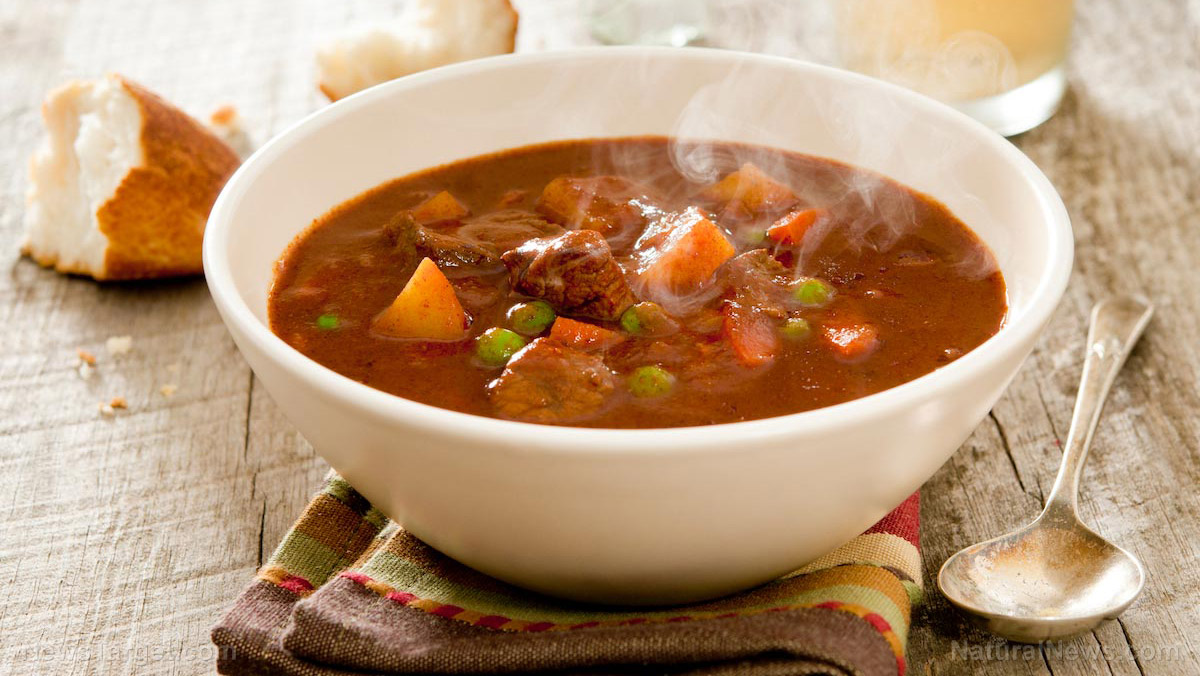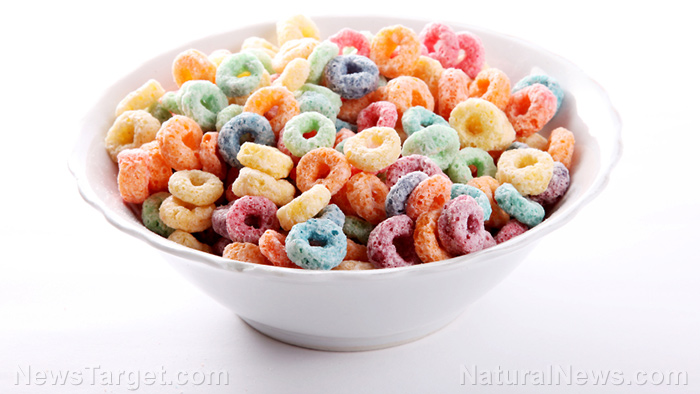The dopamine dilemma: Navigating the stress epidemic in modern life
06/05/2025 / By Kevin Hughes

- Sean David Cohen argues that modern diets filled with processed foods, GMOs, pesticides and artificial additives contribute directly to stress by disrupting dopamine production and toxifying the body’s cleansing organs. He describes this as a “stress diet.”
- Cohen labels dopamine the “elixir of life,” essential for mental and physical balance. He criticizes low-quality dietary choices (e.g., seed oils, fluoridated water) for interfering with natural dopamine function, likening their effects to static disrupting a person’s “high frequency” clarity.
- Beyond food, Cohen highlights how negative influences – frustrated, unhealthy individuals – create a “crabs in a barrel” dynamic, dragging others into stress cycles. He urges distancing from such toxic environments.
- Cohen compares stress to a chaotic pinball game; the more one engages (overthinking, reacting), the worse it becomes. His solution: Pause, let the mind settle and approach problems with calm, high-frequency thinking.
- He advocates for organic whole foods, clean water and supplements (e.g., liquid oxygen, colloidal silver) to alkalize the body. He also emphasizes gut health (e.g., kombucha) for dopamine production and overall well-being, with future focus on restful sleep strategies.
In a world where stressors lurk around every corner, from political turmoil to economic pressures, individuals are increasingly seeking solutions to combat the relentless onslaught of anxiety. Sean David Cohen, host of “The Dopamine Revolution” podcast, delved into the heart of this issue in his latest episode, offering a unique perspective on stress and its pervasive impact on people’s lives.
Cohen’s central thesis is both provocative and compelling. People are not just experiencing stress; they are consuming it. In a society inundated with processed foods laden with additives and chemicals, he argued that people’s dietary choices are a significant contributor to their stress levels.
“You’re eating stress,” Cohen asserted, painting a vivid picture of a population unwittingly ingesting substances that wreak havoc on their mental and physical well-being. “You’re on the stress diet, the stress food regimen.”
The podcast host emphasized the role of dopamine, which he referred to as the “elixir of life,” in maintaining a balanced and healthy lifestyle. The author of the book “The Dopamine Revolution: Elevate Your Mind and Body Naturally” criticized the modern diet, rich in genetically modified organisms (GMOs), pesticides and laboratory-concocted ingredients, for disrupting the body’s natural dopamine production. Cohen believes that by toxifying people’s cleansing organs, they are directly contributing to their stress. (Related: The dopamine crisis: How toxins and poor nutrition are dumbing down society.)
To illustrate his point, Cohen used the metaphor of a radio station. The writer and researcher suggested that people’s bodies and brains function best when tuned to a “high frequency,” akin to a clear radio signal.
However, the “low frequency” substances they consume such as canola oil, fluoride in water and seed oils act as interference, clouding their mental clarity and exacerbating stress. He advocates for a diet of organic, whole foods and clean water, suggesting that these choices can help fine-tune a person’s internal radio to a more harmonious frequency.
Cohen’s critique extends beyond diet to encompass the broader societal forces that contribute to stress. He identified “gross energy” as a pervasive force, emanating from individuals who are frustrated, intoxicated by junk food and medicine, and often unsuccessful in their personal and professional lives. These individuals, he argued, can drag others down, creating a “crabs in a barrel” scenario where those who are thriving are pulled back into the chaos.
Stress can wreak havoc on your mind and body
The podcast host introduced the “pinball machine metaphor” to describe how stress operates within the mind. He likened stress to a ball bouncing around, creating chaos and interfering with a person’s ability to think clearly.
The more people engage with the problem – pushing the flippers, so to speak – the more the ball bounces, increasing their stress levels. This, in turn, manifests through physical symptoms like headaches and insomnia. Cohen’s solution is to step back, let the dust settle and approach problems with high-frequency cognitive function, emphasizing critical thinking and good judgment.
In a world where stress is often seen as an inevitable part of life, Cohen offered a refreshingly proactive approach. He advocates for a regimen of supplements, including liquid oxygen and colloidal silver, to help alkalize the body and reduce inflammation.
He also championed the benefits of kombucha, highlighting its probiotic properties and its role in promoting good gut health. According to Cohen, good gut health is crucial for dopamine production and overall well-being.
As the podcast drew to a close, Cohen promised an upcoming episode dedicated to the topic of restful sleep, underscoring his commitment to addressing the multifaceted nature of stress. His message is clear: by taking control of their personal diets, minds and environments, people can reduce stress and lead healthier, more fulfilling lives.
In conclusion, “The Dopamine Revolution” podcast offered a thought-provoking exploration of stress and its roots in modern life. Cohen’s insights challenge conventional wisdom and encourage listeners to reconsider their approach to stress management. As the podcast continues to gain traction, it serves as a timely reminder that while stress may be an ever-present force, it is not an insurmountable one.
Follow Health.news for more similar stories.
Watch Sean David Cohen discussing stress and how to deal with it in this episode of “The Dopamine Revolution” podcast.
This video is from the TheDopamineRevolution channel on Brighteon.com.
More related stories:
Here’s how you can boost your dopamine levels naturally.
Easy strategies to boost your dopamine levels naturally.
Sources include:
Submit a correction >>
Tagged Under:
Brain, brain function, canola oil, clean water, Colloidal Silver, dopamine, Fluoride, GMOs, inflammation, mental, Mind, Sean David Cohen, seed oils, stress, stress management, The Dopamine Revolution
This article may contain statements that reflect the opinion of the author
RECENT NEWS & ARTICLES
StopEatingPoison.com is a fact-based public education website published by Stop Eating Poison Features, LLC.
All content copyright © 2018 by Stop Eating Poison Features, LLC.
Contact Us with Tips or Corrections
All trademarks, registered trademarks and servicemarks mentioned on this site are the property of their respective owners.



















